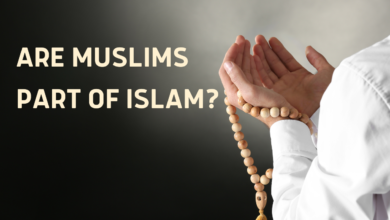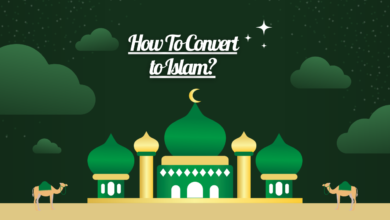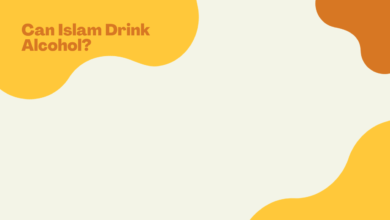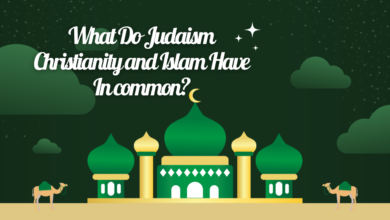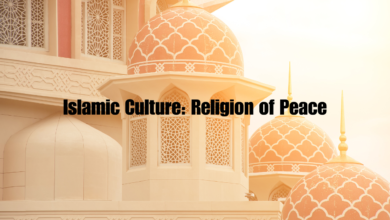Why Do Muslims Celebrate Eid al-Adha?
Understanding the Religious Significance and Traditions
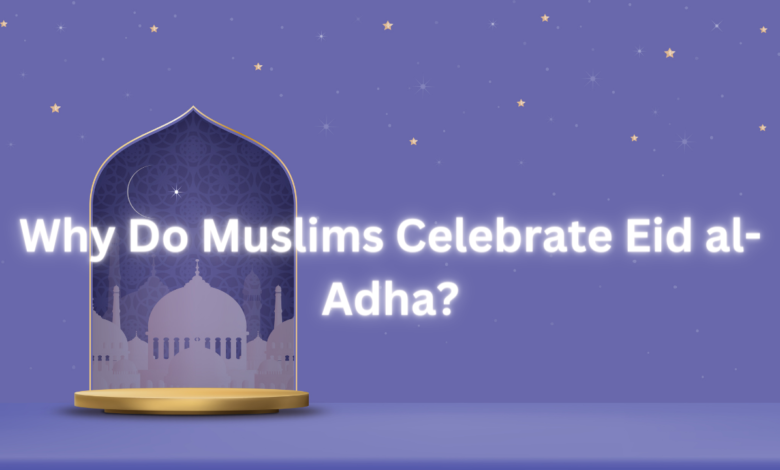
Why Do Muslims Celebrate Eid al-Adha?
Eid al-Adha, also known as the “Festival of Sacrifice,” is a significant Islamic holiday that commemorates the willingness of Prophet Ibrahim (Abraham) to sacrifice his son Isma’il (Ishmael) as an act of obedience to God’s command.

Introduction-Why Do Muslims Celebrate Eid al-Adha?
Eid al-Adha, also known as the “Festival of Sacrifice,” is one of the most significant and cherished religious holidays in Islam. Celebrated by Muslims worldwide, this holiday holds deep spiritual and cultural significance. But why do Muslims celebrate Eid al-Adha, and what does it represent? In this article, we will explore the origins, religious significance, and customs associated with Eid al-Adha.
Origins of Eid al-Adha
Eid al-Adha commemorates a pivotal event in Islamic history: the willingness of Prophet Ibrahim (Abraham in Judeo-Christian tradition) to sacrifice his son Isma’il (Ishmael) as an act of obedience to God’s command. According to Islamic tradition, Allah tested Ibrahim’s devotion by commanding him in a dream to sacrifice his beloved son. Despite the immense emotional turmoil, Ibrahim prepared to carry out the divine command. As he was about to sacrifice Isma’il, Allah intervened, sending a ram to be sacrificed instead. This act of obedience, faith, and divine intervention is the central narrative behind Eid al-Adha.
Also check.
- Why is it haram to abuse in Islam?
- What was the first battle that Prophet Muhammad fought?
- Which of his children did Prophet Muhammad love the most?
- Who became a Muslim during the reign of Prophet Muhammad?
- Are Bitmoji haram in Islam? why? Guide 2023
Religious Significance
Eid al-Adha carries profound religious significance in Islam and reflects core Islamic values:
- Obedience to God: The story of Ibrahim’s willingness to sacrifice his son illustrates the concept of complete submission and obedience to Allah’s will. Muslims celebrate Eid al-Adha to reaffirm their commitment to following God’s commands, even when faced with personal sacrifices.
- Sacrifice: The act of sacrificing an animal on Eid al-Adha symbolizes Muslims’ willingness to give up what is dear to them in obedience to Allah. The meat from the sacrificed animal is shared with family, friends, and those in need, emphasizing the importance of charity and generosity.
- Compassion and Charity: Eid al-Adha serves as a reminder of the importance of helping those less fortunate. Muslims are encouraged to distribute a portion of the sacrificed meat to the needy, ensuring that everyone can enjoy the festivities and the blessings of the holiday.
Customs and Traditions
Eid al-Adha is a joyous occasion marked by several customs and traditions:
- Prayers: The day begins with a special prayer at the mosque, where Muslims gather to worship and seek Allah’s blessings. The prayer often includes a sermon that emphasizes the importance of obedience, sacrifice, and charity.
- Sacrifice: Following the prayer, Muslims who can afford to do so perform the act of sacrifice, typically involving livestock like sheep, goats, cows, or camels. The meat is divided into three parts: one-third for the family, one-third for relatives and friends, and one-third for the less fortunate.
- Festive Meals: Eid al-Adha is a time for families to come together and enjoy special meals, often featuring the freshly sacrificed meat. It is also customary to exchange gifts and visit relatives and friends.
- Charity: In addition to distributing meat from the sacrifice, Muslims are encouraged to engage in acts of charity and kindness throughout the holiday, ensuring that the less fortunate can also participate in the celebrations.
- New Clothes: It is common for Muslims to wear new or their finest clothes on Eid al-Adha, symbolizing purity and renewal.
Conclusion
Eid al-Adha is a beautiful celebration that encapsulates the core principles of Islam: obedience to God, sacrifice, compassion, and charity. It reminds Muslims of the significance of faith and the importance of helping those in need. Through the story of Ibrahim and Isma’il, this holiday teaches a valuable lesson about devotion, submission, and the boundless mercy of Allah. As Muslims worldwide come together to celebrate Eid al-Adha, they not only honor their faith but also strengthen their sense of community and solidarity with one another.
FAQs-Why Do Muslims Celebrate Eid al-Adha?
What is Eid al-Adha?
Eid al-Adha, also known as the “Festival of Sacrifice,” is a significant Islamic holiday that commemorates the willingness of Prophet Ibrahim (Abraham) to sacrifice his son Isma’il (Ishmael) as an act of obedience to God’s command.
When is Eid al-Adha celebrated?
Eid al-Adha falls on the 10th day of Dhu al-Hijjah, the final month of the Islamic lunar calendar. The exact date varies each year since the Islamic calendar is based on the lunar cycle. Muslims worldwide observe this holiday.
Why is it called the “Festival of Sacrifice”?
It is called the “Festival of Sacrifice” because it commemorates the willingness of Prophet Ibrahim to sacrifice his son Isma’il as an act of obedience to God. However, God intervened and provided a ram for the sacrifice instead.
What is the significance of Eid al-Adha in Islam?
Eid al-Adha symbolizes key Islamic values, including obedience to God, sacrifice, compassion, and charity. It serves as a reminder of the importance of faith, submission to God’s will, and helping those in need.
How do Muslims celebrate Eid al-Adha?
The celebration typically begins with a special prayer at the mosque. Afterward, Muslims who can afford to do so perform a sacrificial act involving livestock. The meat is distributed among family, friends, and the less fortunate. Festive meals, charity, and visiting loved ones are also common customs.
What is the role of charity during Eid al-Adha?
Charity is a central aspect of Eid al-Adha. Muslims are encouraged to distribute a portion of the sacrificed meat to the less fortunate, ensuring that everyone can partake in the celebrations. Additionally, Muslims engage in acts of kindness and generosity during this holiday.
Are there specific greetings for Eid al-Adha?
Yes, common greetings for Eid al-Adha include “Eid Mubarak” or “Eid Sa’id,” which means “Blessed Eid” or “Happy Eid.” These greetings are exchanged among Muslims during the holiday.
Do Muslims exchange gifts during Eid al-Adha?
Yes, it is customary for Muslims to exchange gifts, especially among family and friends, as a way of spreading joy and strengthening bonds during the holiday.
Can non-Muslims participate in Eid al-Adha celebrations?
Yes, many Muslims welcome non-Muslim friends and neighbors to join in their Eid al-Adha celebrations as a gesture of goodwill and community spirit.
How long does Eid al-Adha last?
Eid al-Adha typically lasts for three days, although the number of holiday days can vary depending on local customs and traditions.
